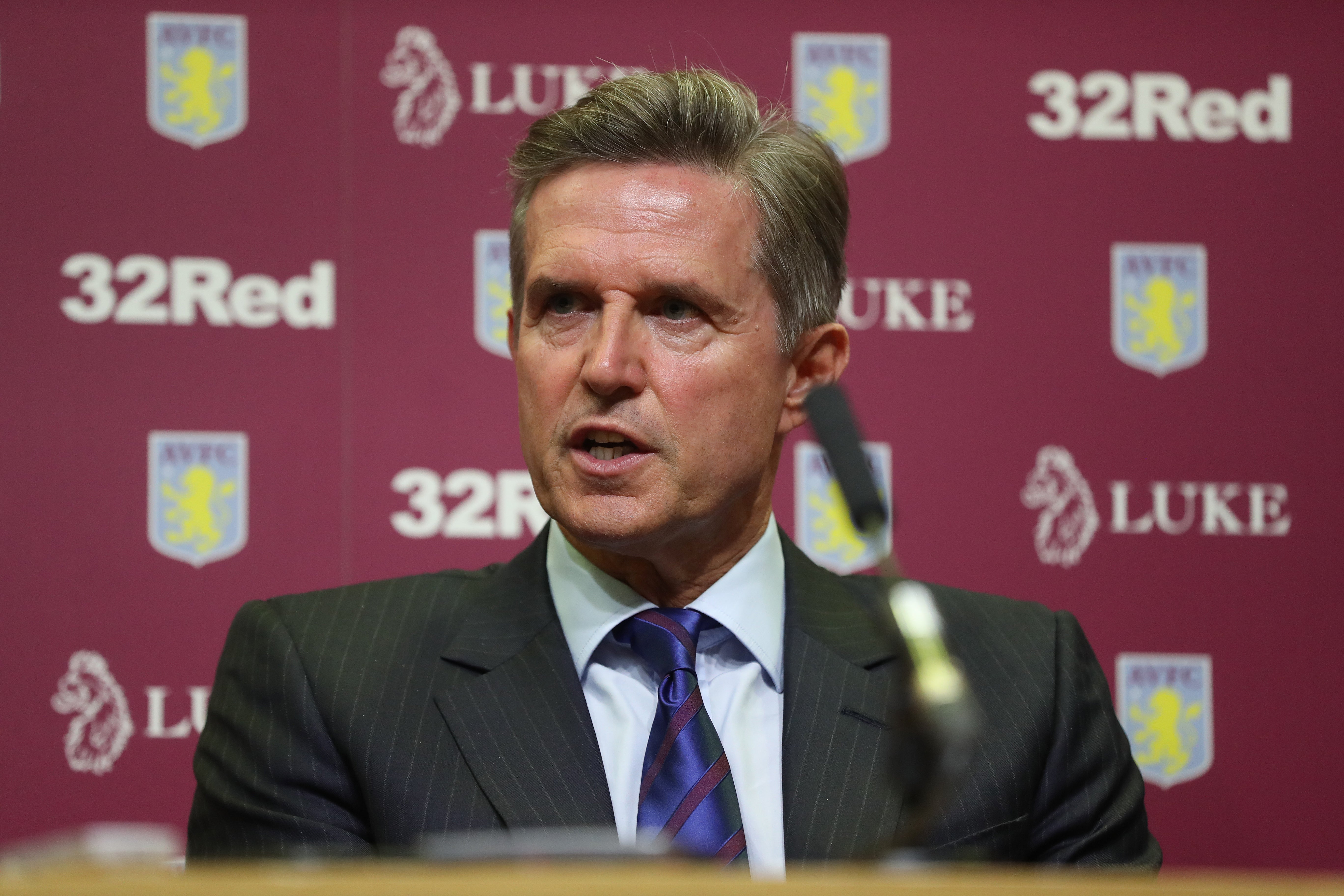Football risks killing the golden goose, warns Aston Villa’s Christian Purslow
A “stamp duty” on deals between top-flight clubs or signings from overseas has been proposed

Your support helps us to tell the story
From reproductive rights to climate change to Big Tech, The Independent is on the ground when the story is developing. Whether it's investigating the financials of Elon Musk's pro-Trump PAC or producing our latest documentary, 'The A Word', which shines a light on the American women fighting for reproductive rights, we know how important it is to parse out the facts from the messaging.
At such a critical moment in US history, we need reporters on the ground. Your donation allows us to keep sending journalists to speak to both sides of the story.
The Independent is trusted by Americans across the entire political spectrum. And unlike many other quality news outlets, we choose not to lock Americans out of our reporting and analysis with paywalls. We believe quality journalism should be available to everyone, paid for by those who can afford it.
Your support makes all the difference.Imposing a transfer levy on Premier League clubs to further support the football pyramid risks “killing the golden goose”, according to Aston Villa chief executive Christian Purslow
The fan-led review of football governance, among other recommendations, proposed a “stamp duty” of up to 10 per cent on deals between top-flight clubs or signings from overseas to help safeguard the financial stability of the lower divisions.
The Premier League broadly welcomed the review and will examine all the proposals moving forward – but also issued a warning over any wide-sweeping reforms which ultimately damage the game’s standing.
And Purslow said top-flight clubs should not simply be viewed as an easy target with unlimited financial muscle.
“It will be difficult to do much more as the Premier League has already committed to government that in the next three years £1.6billion will, to use your verb, cascade down through the rest of football. It was ever thus,” Purslow told BBC Radio 4’s Today programme.
“The pyramid has always depended on the very top of the game largely funding the ecosystem that is football and that was most obviously seen in the middle of the Covid crisis when the Premier League lent over £250million to the Championship and gifted over £50m to League One and League Two.
“The Premier League has always really been the source of funding for the rest of football and the danger here is of course, as you said, killing the golden goose if we overregulate a highly successful financial and commercial operation.”
The review’s central recommendation on the creation of an independent regulator for football via an Act of Parliament has been endorsed in principle by the Government, with a substantive response being worked on to be presented next spring.
Arsenal manager Mikel Arteta accepts English football must be ready to face up to such changes when they are implemented.
“We have to read through it (the review) properly, see what we want as a club, where we are going to position ourselves,” the Gunners boss said.
“But there is a movement and as with everything, we will evolve in one direction, hopefully the right one.”
Brighton manager Graham Potter feels some of the recommendations could provide additional financial stability further down the divisions.
“The reality is we are in a market economy. It seems we have gone a little bit too far, anything we can do to improve the game I am all for, to support the game,” he said.
“Most of my (playing) career was in the Football League and I know the struggles that clubs in those divisions can face.
“I remember one Christmas not getting my salary because the club hadn’t managed their finances very well.
“It is down to the clubs to do that, but if there is anything we can do as a collective to make the game better, that is important.
“To regulate the dynamics of football clubs in terms of who owns them and the governance, it might be hard to do, but I haven’t seen enough (of the review) to pass much more of a comment.”